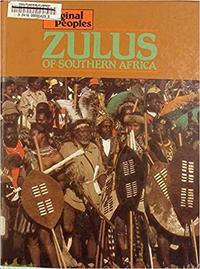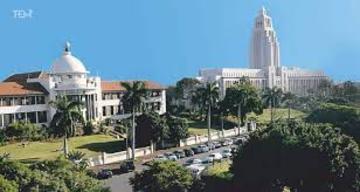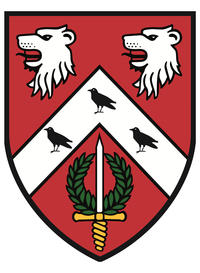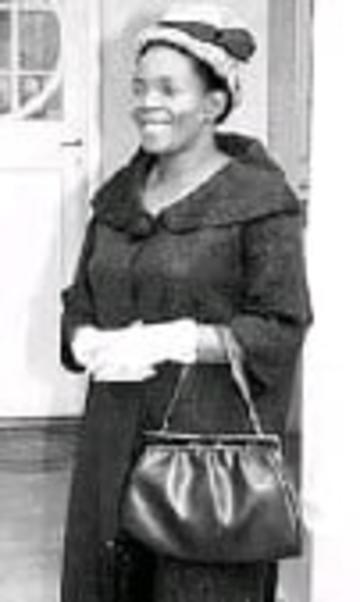Harriet Ngubane: Zulu woman anthropologist
Harriet Ngubane: Zulu woman anthropologist and observer of changing South African society.
‘Writing as a professional anthropologist, she works steadily within the framework of modern theory…but to this she adds insight that comes from her vantage point as a member of the society that she is describing, and this makes all the difference’. [i]
Harriet Ngubane’s Body and Mind in Zulu Medicine (1977) was recognised by social scientists across continents for the strength of its contribution to contemporary anthropological thought. As a Zulu woman, astute observer of South African society, and applied social scientist, Harriet Ngubane approached her field of study – Nyuswa conceptions of health and disease - with great care.
She argued that ideas and beliefs surrounding health and disease were related, above all, to the contexts of family life and social organisation in which they emerged. Through her ethnography of Zulu beliefs, she found an ‘elaborate and ordered system of ideas and practice…’ which helped the Nyuswa ‘perceive and cope, conceptually and practically, with the problems of health and disease as they present themselves in their normal experience’. [ii]
Studying medicine, as a woman, and as an ethnographic researcher, was no easy feat – a sphere in which misinformation could readily be given from interlocuters, and a field-site where no female anthropologists had worked before, but Harriet worked thoroughly, quickly and professionally to undertake two extended periods of fieldwork in 1963-4 and 1971, where she gathered the material for what would become her two monographs. [iii] As most able-bodied men were away working, Harriet spent most of her time during fieldwork with women, which she remarked, suited her quite well.

According to Ngubane, Zulu perceptions of, and responses to, the problems of health and disease in everyday life were powerful because of their societal consequences. For example, she emphasised the importance of red symbols as representing the change from sickness to good health because of the therapeutic power of symbolism for the sufferer. To be reunited with society through cure was to effect a desired situation in life, whether that be social, biological or spiritual. This deeply anthropological understanding of health considered that it is in fact the process of achieving a desired state is of most significance to the sufferer.
Colonialism and apartheid in South Africa forced considerable upheavals to the Zulu way of life during this period, but the long-established practices relating to health and disease that Ngubane researched endured, providing a source of sustenance in shared beliefs for the majority of people. Contrary to Vilakazi, who had studied the Zulu previously, Ngubane found that observation of Zulu culture in her field of study remained significant. ‘In spite of Christianity the permeating influence in the Nyuswa reserve is based more on Zulu culture than on any foreign culture’ she argued. [iv] These questions of cultural distinction, tradition and social change first explored during this formative period of fieldwork were to become major themes of her work and thinking.
Belonging and not-belonging: the Nyuswa reserve
‘In most aspects of daily life, outlook and habits, I am Zulu in spite of my mission background’. [v]

During an initial seven-month period of fieldwork on the Nyuswa reserve, Harriet stayed with an extended family whose ancestors traced back to her mother’s clan. Although she was accustomed to much of the social behaviour she encountered through personal experience – she was also frank about where the limits of her comprehension lay – and what implications this had for her research.
The mission background Harriet described made her a Christian Zulu, a distinction which was significant both for her academic trajectory and her ethnographic positionality. In upbringing, education and training, Catholicism had been influential. But the field-site and the anthropological point of view forced a personal re-consideration of those formational influences. Important aspects of Zulu culture were unrecognised and denied by Catholicism, including the recognition of ancestral power, the consulting of a diviner and certain forms of marriage. [vi]
The gaps in Harriet’s experience and understanding were clear after only a short time in the field. She describes the mistake of asking to buy goat skins from her hosts. Through this request she unwittingly revealed that she and her husband did not slaughter any goats themselves at home. This implied a serious disrespect for honouring the ancestors – the reason for goat slaughter in the community. Upon realising her mistake, she quickly corrected herself, telling a white lie to her hosts to smooth over the situation. This experience impressed the importance of instruction in Zulu etiquette to Harriet; she quickly learnt to fill the gaps in her knowledge, and to convince her interlocuters that she both respected and was well-informed about Zulu tradition, despite her missionary background.
Indeed, a central and overarching aim of hers across projects was to establish ‘a good knowledge of what people change from, as a prerequisite for understanding directions in transformation’ [vii]. Focussing on change from this perspective was important for personal and intellectual trajectories in Harriet’s life. Through her research, for example, she found herself increasingly engaging with Zulu belief systems and practices that she had identified with less in the Christian contexts of her upbringing and early adult life. She soon decided to publish professionally by her maiden name, Ngubane. Formerly known by her married name, Sibisi, Harriet was choosing to identify herself in accordance with Zulu custom, whereby a woman does not change her surname on marriage.
Outlining the distinctive meanings of Zulu terms relative to use in the English language or those influenced by missionaries was therefore also important. The two central concepts of her work in the growing field of Medical Anthropology were medicine and disease. Ngubane explains that the Zulu term umuthi, often used as a synonym for the English word ‘medicine’, has broad connotations. It refers to both noxious as well as curative substances. [viii] Umuthi can be used both to heal and to harm – sometimes, but not always, when accompanied by symbolism and ritual. Similarly, the English word ‘disease’ is understood by Ngubane in the Zulu sense. Disease as isifo is not just the manifestation of somatic symptoms, but also misfortune and the state of vulnerability to misfortune. In this way, a broad ecology of health-status is considered. Good health encompasses the harmonious working and coordination of the whole universe of a Zulu person. [ix]
In both belonging and not-belonging on the Nyuswa Reserve, Harriet had established for herself a unique point of view as an anthropologist. Her personal experience and periods of fieldwork convinced her that the majority of Christian and Zulu beliefs were not incompatible, and the approach she fostered was hugely valuable because it built connections in understanding and practice between the two.
From Natal to England: self-confidence and intellectual liberation

The University of Natal. Photo credit: The Education Magazine
The first Zulu woman to achieve a higher degree, Harriet Ngubane obtained her PhD at Cambridge University in 1972. On returning to South Africa to work at the University of Natal, she found her position as a black academic in a white university becoming more and more untenable. [x] In 1966, universities had been closed to black students in South Africa. Due to her academic standing, Harriet was enabled to work at the University of Natal in the position of Research Assistant at the Institute for Social Research. There, she contributed to quantitative social analysis in collaboration with H.J. Watts and other South African social scientists, working on an applied report investigating urban Bantu housing conditions.
It was extremely challenging for her to pursue academic research in South Africa during this period. Married women, like Harriet, could not be accepted at black universities, and although she was employed at ‘white rates’ at the University of Natal due to her prominent academic standing, she was greatly restricted in the very intellectual freedom that she had enjoyed just a few years previously in England.
A strong international network now sustained Harriet, recognising her talent and potential, and offering relational, academic and financial support to enable her to pursue her work. Archbishop Hurley of Durban - a key figure in the criticism of apartheid – alongside the Institute of Race Relations in Durban, and several private sponsors, enabled Harriet to travel to the UK and continue to pursue her promising academic career there. She first returned to England as William Paton lecturer at Selly Oak, Birmingham, where she made a strong reputation as a thoughtful and empathetic teacher and researcher.

Arms of St Anne's College, Oxford
However, Harriet’s career was still at a forced impasse. The visiting lectureship in Birmingham only lasted for one year, and her post at the University of Natal remained overwhelmingly challenging to consider returning to. Thanks to the strength of her academic track record and support from former supervisors and colleagues, Ngubane’s application to the Ioma Evans-Pritchard Fellowship was accepted in 1974. The warm welcome afforded to Harriet and three of her children in Oxford that year, provided the financial, intellectual and emotional security to revise her PhD thesis for publication. St Anne’s College provided further grants through the Walter Gordon Fund for the printing of the written manuscript. Although the Fellowship was intended for a candidate writing up a thesis for publication, and Harriet might have been considered too advanced in her trajectory to take up such a position, her talent was recognised and she had a lot of fieldwork data to write up.
When the Fellowship ended, the manuscript safely at the printers, Harriet moved to Edinburgh to take up a Lectureship. Her three smaller children would travel with her, and two older children continue their further studies in the UK.
Through these challenges, the impact of apartheid on her work was not left unacknowledged. She wrote that it leads to the development, ‘in subtle ways, uncertainties and feelings of inadequacy among those who are underprivileged’. [xi] Thanks to the reassurance, support and intellectual liberation offered by anthropologists and academic institutions across continents, Ngubane’s contribution to the discipline was established in adverse circumstances.
A liberal-functionalist: between ‘old’ and ‘new’ South Africa
According to Bank, South Africa’s first female anthropologists were, ‘viewed largely by later generations as functionalist in theoretical orientation and conservative in political outlook’, and thus, ‘their contribution to the study of changing South African society has been marginalised’. [xii]
But, as a reconsideration of Harriet’s and other biographies demonstrate, these women were far more influential in establishing the discipline than has been recognised. It was through the encouragement and inspiration of Eileen Krige, Chair of Social Anthropology at the University of Natal, that Harriet took up the study of Anthropology as a BA student. Krige’s influence in establishing a strong interest in anthropology among Africans – and female students - was not to be underestimated [xii]. The ‘feminine, if not matriarchal influence on the growth of the subject’ through the growing network of women studying and teaching anthropology in South Africa stretched across generations. [xiii]
Winifred Tucker Hoernlé, Monica Hunter Wilson, Ellen Hellmann, Audrey Richards, Hilda Beemer Kuper and Eileen Jensen Krige were extremely influential researchers during this period. It was significant that ‘these women remained in South Africa and developed the discipline from within, under adverse intellectual and political circumstances.’ [xiv] Harriet too, followed this trajectory and eventually returned to work in South Africa: in her academic interests, she never left. Those formative academic approaches were South African, after all. She was not the first to have a ‘second career’ in activism and politics – as an Inkatha Freedom Party (IFP) MP in South Africa’s first Parliament from 1994.
The interest in cultural and social change was both academic and political, therefore. What is distinctive about Ngubane’s work is the focus on cultural tradition and social change in a range of South African contexts she focussed on – both rural and urban.
This focus is firmly within the tradition of Monica Hunter Wilson, who:
‘played a key role in reorienting the functionalist tradition away from the tribal study written in the ethnographic present towards the study of social change in Africa’. [xv]
Harriet’s work became increasingly political. In 1999, she published an examination of the democratic government’s handling of the pursuit of development and the viability of African indigenous culture within that. Here, she was resoundingly critical: ‘the government, through its legislation and administrative practice continues to treat everyone as having the same value-system, essentially a Western form of individualism’. [xvi] However, she also described how ‘the tendency to side-line and marginalise African culture, denying its importance and minimising the institutions which rest on it, has met with resistance’ [ibid]. To investigate these questions required a strong interest and resolute focus on questions of land and space. This, she had pursued as a social anthropologist for the British Government in Swaziland between 1978 and 1984.
In this role, Harriet argued for greater co-operation between human and agricultural sciences in South Africa, pointing out, ‘a system that puts people first cannot fail’. [xvii] Communal farming systems of the kind she observed were under threat from modernisation and development. Moral philosophies and belief systems which had defined the management of land and resources were misunderstood and side-lined. For example, she defined the Zulu moral philosophy of Ubuntu as follows: it ‘implies at once that you cannot be an individual, or a person, without having rights and obligations. The most basic right is to exist, from which follow the right of access to the means of existence. The most basic obligation is to respect the personhood and thereby the rights of other people’. [xviii] Such a philosophy is hampered in its operation if certain conditions are absent: the very situation faced by black South Africans during this period.
The political consequences of an applied anthropological agenda in this context should not be overlooked or underestimated. For Ngubane and her peers, the social upheavals of colonialism, apartheid and democratic transition were formative on a personal, academic and political level. As such, it is notable that Harriet’s interest in Zulu customs, tradition and land leaned towards emphasising cultural distinction, and the holism of culture. Those perspectives strongly informed the political commitments which she pursued in public debate. For example, in a discussion on her work on the 1991 Land Act with Padraig O’Malley, Ngubane concluded: ‘the tragedy of this country is that the white people don’t know the black people at all. The black people have an idea about the white people better because they work for them, they see them and so on, but the white people don’t know the blacks, completely’ [xix]. Her perspective on what kinds of social change were thought to be possible was largely defined by her conceptual orientations. In this context, and in its political application, the role that anthropology had to play in defining its subjects and constructing African identities, could be highly consequential.
‘The Zulu way of doing things’
Harriet Ngubane’s contribution to the anthropology of South Africa helps us to re-consider the diversity of definitions of anthropological identity available to us. Rather than defining a singular contribution, biographical research can clarify the relations between identities and political forces in institutional and individual histories. A Christian Zulu by upbringing, Harriet both personally and intellectually navigated the changing relationship between tradition and social change – leading her to pursue a deeply anthropological set of questions throughout her work.
The idea of development and the distinction between ‘old’ and ‘new’ African society was of continual interest. How would Zulu modes of thought, and social practices change, or stay the same? What was significant about South African social change, and how was it being understood and realised by different groups? Exploring these questions (and more beyond) as a Zulu woman anthropologist, Ngubane bridged multiple geographies, fields of thought, application and enquiry in her career. Like other women of her generation, she pursued applied work both in, and beyond, multiple universities, making a significant contribution to the social and political progress of post-apartheid South Africa, and to the influence of applied anthropological thought.
Ultimately, the liberalism pursued by Ngubane and her peers in South Africa may translate differently in the global north, but it is significant to consider in its own terms. [xx] As an anthropologist, Harriet not only described the ‘Zulu way of doing things’, but proved how and why this mattered. She sustained a strong conviction that it was social beliefs and practices - the ways of organising society with the aim of achieving a desired social, spiritual or biological outcome - that were, in Ngubane’s words, is ‘what life is all about’. [xxi]
Anna Geatrell studied the MSc Social Anthropology at the School of Anthropology and Museum Ethnography in 2021, and Human Geography at the LSE. She currently works on ethnographic social and market research for Ipsos UK.
[i] Fortes, Nugubane, Body and Mind in Zulu Medicine (London, 1977), p. xi
[ii] Ngubane, Body and Mind in Zulu Medicine (London, 1977), p. xi
[iii] Last, Africa: Journal of the International African Institute, Review of Body and Mind in Zulu Medicine: An Ethnography of Health and Disease in Nyuswa-Zulu Thought and Practice by Harriet Ngubane, 49 (2), p. 211. Ngubane’s monographs were published in 1977 and 1986 respectively and focussed on describing Zulu practices.
[iv] Nugubane, Body and Mind in Zulu Medicine (London, 1977), p. 20
[v] Nugubane, Body and Mind in Zulu Medicine (London, 1977), p. 5
[vi] Nugubane, Body and Mind in Zulu Medicine (London, 1977), p. 3
[vii] Nugubane, Body and Mind in Zulu Medicine (London, 1977), p. 2
[viii] Nugubane, Body and Mind in Zulu Medicine (London, 1977), p. 22
[ix] Nugubane, Body and Mind in Zulu Medicine (London, 1977), p. 28
[x] The University of Natal, as it was known, has now been incorporated into the University of KwaZulu-Natal, following the same re-designation in the name of the Province.
[xi] Ngubane, Body and Mind in Zulu Medicine (London, 1977), p. xiv
[xii] Hansen, South African Journal of Science, Let us now praise famous women: Revising South Africa’s foundational anthropology narrative. 113 (3/4) p. 1 reviewing Bank, Pioneers of the Field: South Africa’s Women Anthropologists. (Cambridge, 2016).
[xiii] Argyle, Obituaries, Eileen Jensen Krige, Natalia, 1995 pp. 92-95.
[xiv] Hansen, South African Journal of Science, Let us now praise famous women: Revising South Africa’s foundational anthropology narrative. 113 (3/4) p. 2
[xv] Bank, Pioneers of the Field: South Africa’s Women Anthropologists. (Cambridge, 2016), p. 1 reviewing Bank, Pioneers of the Field: South Africa’s Women Anthropologists. (Cambridge, 2016).
[xvi] Ngubane, Anthropological Journal on European Cultures Current Politics, Development Aims and Anthropology in Southern Africa, 8 (2), p. 130
[xvii] Ngubane, Anthropological Journal on European Cultures Current Politics, Development Aims and Anthropology in Southern Africa, 8 (2), p. 139
[xviii] Ngubane, Anthropological Journal on European Cultures Current Politics, Development Aims and Anthropology in Southern Africa, 8 (2), p. 131
[xix] Ngubane, 1992, O’Malley’s Political Interviews, https://omalley.nelsonmandela.org/omalley/index.php/site/q/03lv00017/04lv00344/05lv00607/06lv00666.htm Accessed 31st July.
[xx] Hansen, South African Journal of Science, Let us now praise famous women: Revising South Africa’s foundational anthropology narrative. 113 (3/4) pp. 1-2
[xxi] Ngubane, Theoria to Theory, How the Zulu see their diseases, 1974 8, pp. 351.
NGUBANE, H., 1969. Urban Bantu housing: a detailed study and re-appraisal of the position in South Africa. Institute for Social Research (South Africa).
Ngubane, H. 1974, How the Zulu see their diseases. Theoria to Theory, 8, pp. 343-351.
NGUBANE, H., 1976. Some Notions of ‘Purity’ and ‘Impurity’ among the Zulu. Africa: Journal of the International African Institute, 46 (3), pp. 274-284.
NGUBANE, H., 1977. Body and mind in Zulu medicine: an ethnography of health and disease in Nyuswa-Zulu thought and practice. London: Academic Press.
NGUBANE, H., 1980. Rethinking tradition. In Symposium Leo Frobenius II: The Role of Traditions in the Development of Africa – Final Reports of an International Symposium organized by the German and Senegalese Commissions for UNESCO from 14 to 17 march 1979 at Dakar.
NGUBANE, H., 1981. Aspects of Clinical Practice and Traditional Organisation of Indigenous Healers in South Africa. Social Science & Medicine, 15b, pp. 361-365.
NGUBANE, H., 1986. Zulus of Southern Africa. Hove: Wayland.
NGUBANE, H., 1992. Review of Abafazi Bathonga Bafihlakala: Ethnicity and Gender in a KwaZulu Border Community by David Webster. Agenda: Empowering Women for Gender Equity, 13, pp. 70-84.
NGUBANE, H., 1995. The Politics of Land Restitution in South Africa. Draft of Opening Presentation for a Panel Discussion on Resettlement Issues in African Development at the conclusion of the Conference on Development Induced Displacement and Impoverishment, Wadham College, Oxford, January 3-7, 1995.
NGUBANE, H., 1999. Current Politics, Development Aims and Anthropology in Southern Africa. Anthropological Journal on European Cultures, 8 (2), pp. 129-140.




